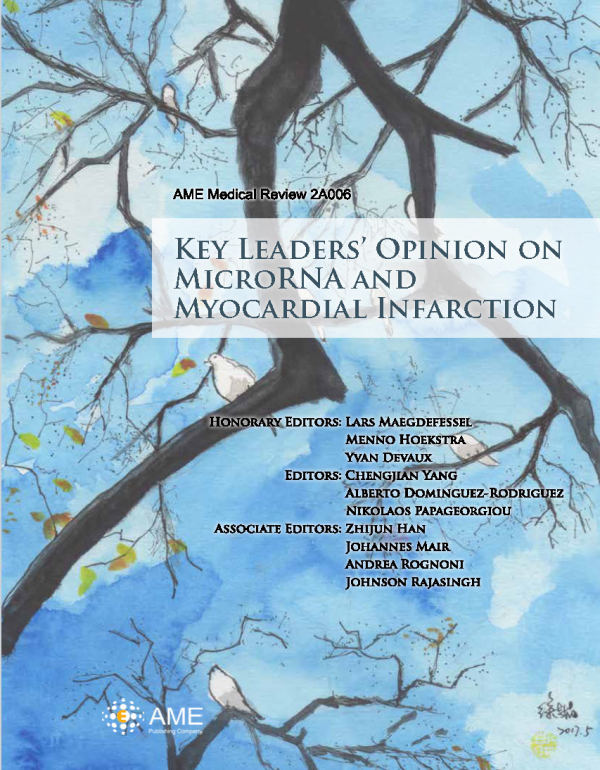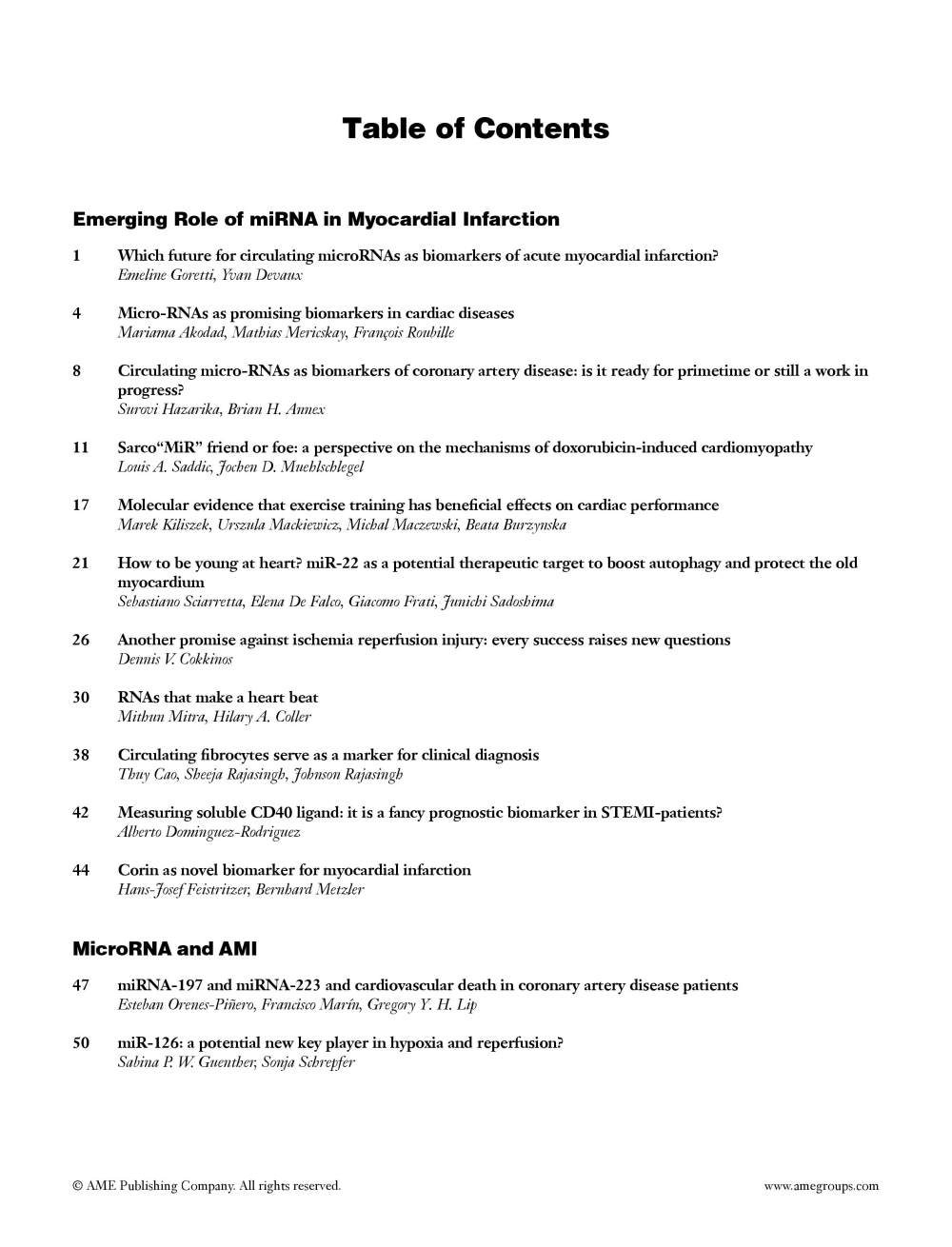
Key Leaders’ Opinion on MicroRNA and Myocardial Infarction
| Editors: | Chengjian Yang, Alberto Dominguez-Rodriguez, Nikolaos Papageorgiou |
Publisher: AME Publishing Company; 1st edition (2019)
ISBN-13: 978-988-78920-9-0
Hardcover: 145 pages
Language: English
An increasing number of studies have recently demonstrated that the human genome is dynamically transcribed and leads to the production of a complex world of RNAs. Of those, there is a wide spectrum of RNAs that do not encode proteins, named as non-coding RNAs (microRNAs, miRNAs), whose role remained unclear for many years. Evidence suggests that miRNAs are associated with human disease. Recent studies indicate that altered expression and function of miRNAs is strongly associated with cardiovascular disease including arrhythmias, hypertrophy and myocardial infarction.
Several methods have been developed to study the expression and quantification of miRNAs, but each individually still has practical issues and technical limitations which need to overcome in order to adapt the use of miRNAs in routine clinical practice. Despite the recent advances and promising results associating miRNAs with myocardial infarction, there is still a large proportion of studies that failed to show superiority of miRNAs over classic biomarkers. miRNAs could be of value as adjunctive and combinative biological tools, focusing particularly on the early diagnosis of acute myocardial infarction and to distinguish unstable angina from other non-cardiac causes of chest pain. However, there is need for more clinical studies to evaluate the role of miRNAs in myocardial infarction as stable and sensitive biomarkers.
In the present book, we highlight the potential role of miRNAs as diagnostic tools as well as possible therapeutic targets in cardiovascular disease and more specifically in myocardial infarction. We hope that this book will trigger further research on the role of miRNAs in this field.
HONORARY EDITORS
| Lars Maegdefessel | Molecular Vascular Medicine, Karolinska Institute, Center for Molecular Medicine L8:03, 17176 Stockholm, Sweden; Experimental Vascular Surgery and Vascular Biology Laboratories, Technical University Munich, Klinikum rechts der Isar, Department of Vascular and Endovascular Surgery, Munich, Germany |
| Menno Hoekstra | Division of BioTherapeutics, Leiden Academic Centre for Drug Research, Gorlaeus Laboratories, Einsteinweg 55, 2333CC Leiden, The Netherlands |
| Yvan Devaux | Cardiovascular Research Unit, Luxembourg Institute of Health, 84 Val Fleuri, L-1445 Luxembourg, Luxembourg |
Editors
| Chengjian Yang | Department of Cardiology, Wuxi Second Hospital, Nanjing Medical University, Wuxi, jiangsu, China |
| Alberto Dominguez-Rodriguez | Hospital Universitario de Canarias, Department of Cardiology, Ofra s/n La Cuesta E-38320, Tenerife, Spain |
| Nikolaos Papageorgiou | Barts Heart Centre, St Bartholomew’s Hospital, West Smithfield, London, EC1A 7BE, UK |
ASSOCIATE EDITORS
| Zhijun Han | Department of Laboratory Medicine, Wuxi Second Hospital, Nanjing Medical University, Wuxi, Jiangsu, China |
| Johannes Mair | Department of Internal Medicine III – Cardiology and Angiology, Innsbruck Medical University, A-6020 Innsbruck, Austria |
| Andrea Rognoni | Coronary Care Unit and Catheterization Laboratory, “Maggiore della Carità Hospital”, Corso Mazzini 18, 28100 Novara, Italy |
| Johnson Rajasingh | Department of Internal Medicine, Cardiovascular Research Institute, Department of Biochemistry and Molecular Biology, University of Kansas Medical Center, Kansas City, KS 66160, USA |





